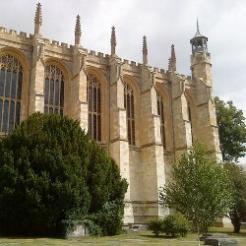Eton College posted a surplus of £3.2m in its last financial year and income from school fees increased by nearly 4 per cent to £43.6m.
The charitable independent boarding school that educated David Cameron, Boris Johnson, Nick Hurd and Princes William and Harry, spent £5.7m funding bursaries and scholarships over the year, up by 12 per cent from £5.1m the year before.
The school provided financial assistance with fees to 21 per cent of its students (277 boys) and 64 of these paid no fees at all. These figures were up from 264 and 50 the year before, and Eton aspires to grow the proportion of boys receiving help with fees to 25 per cent, and those paying nothing, to 70.
Its total income came in just short of £62m, up from £55.7m the previous year, and total balance sheet funds rose from £314m to £344m.
Total expenditure also increased during the year to 31 August 2014, from £55.3m to £58.7m. Most of this was down to the rising costs of running the school, including a “significant spend on the renovation of listed buildings”. Its annual report stated: “The College will always have to spend significant amounts of money on maintaining its 398 buildings, including the 78 that are listed. These costs are funded not just from school fees but also from donations and draw-down from endowment funds.”
The school’s directly-held property investments were valued by an external valuer at £70m at the end of August 2014, an increase of 13 per cent or £8m. The portfolio comprises 36 per cent residential property; 25 per cent agricultural land; 19 per cent commercial investments, 14 per cent property in Eton, and 6 per cent other.
Public benefit
As well as the provision of bursaries to children of poorer families, the annual report lists a number of activities the school undertakes on top of its core activity of providing education.
It sponsors the first boarding school established under the government’s free schools scheme, Holyport College, and engages in various local educational partnership schemes.
It offers its chapel (pictured), school hall, Farrer Theatre and other facilities for use by local schools, clubs and societies, and a number of students mentor children at nearby maintained schools and academies.
The report also states that “community service is provided by boys taking food and clothing to homeless people in Slough, by visiting the elderly and by playing the organ in four local churches.”
The school provides back-office administrative functions to the Poor’s Estate which runs a day centre for the elderly in the local parish.
No 73 in top-100 charities list
Eton College was number 73 in the 2014 Charity Finance Charity 100 Index, which ranks charities by their average income over the past three years. The 2015 Index will be published in Charity Finance next month.
Independent Schools Council challenge to Charity Commission
The Charity Tribunal ordered the Charity Commission to rewrite its public benefit guidance two years ago after the Independent Schools Council mounted a successful legal challenge to its original version in 2011.
The new guidance separated the public benefit requirement in relation to charitable status from the public benefit test in relation to the charity’s operations, making it clear that fee-charging charities such as Eton would only lose their charitable status if their charitable purposes failed to be for the public benefit - not their operations.









